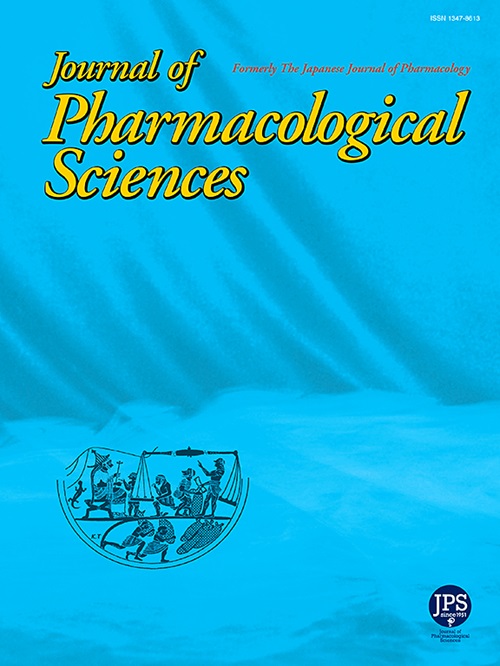Endothelial NLRP3-mediated pyroptosis induces blood-brain barrier and neuronal damage in Huntington's disease models
IF 2.9
3区 医学
Q2 PHARMACOLOGY & PHARMACY
引用次数: 0
Abstract
The NLRP3 inflammasome is primarily expressed and activated in microglial and endothelial cells. Extensive research has been conducted on the activation of NLRP3 inflammasomes by microglial cells leading to pyroptosis. However, there have been no reports on the activation of NLRP3 inflammasomes in brain vascular endothelial cells in patients with Huntington's disease (HD) or HD animal models, leading to blood-brain barrier (BBB) disruption. We herein found that BBB leakage increased and the expression of tight junction proteins significantly decreased after transfecting the mutant Huntingtin protein (mHtt) Q74 plasmid into the mouse brain microvascular endothelial cell line bEnd.3. mHtt promoted the activation of NLRP3 by brain vascular endothelial cells, and increased the expression of the pyroptosis-related proteins. This resulted in a decrease in the expression of the NeuN in the brain of hHTT130 transgenic mice. Furthermore, by downregulating NLRP3 in Q74-transfected bEnd.3 cells or in hHTT130 mouse brain vascular endothelial cells, BBB disruption and endothelial cell pyroptosis were alleviated, the number of surviving neurons was significantly increased. In conclusion, mHtt can activate the NLRP3 inflammasome in brain microvascular endothelial cells to induce endothelial cell pyroptosis, thereby disrupting the function of the BBB, leading to neuronal damage.
内皮nlrp3介导的焦亡诱导亨廷顿病模型血脑屏障和神经元损伤
NLRP3炎性小体主要在小胶质细胞和内皮细胞中表达和激活。关于小胶质细胞激活NLRP3炎性小体导致焦亡的研究已经进行了大量的研究。然而,在亨廷顿病(HD)患者或HD动物模型的脑血管内皮细胞中,NLRP3炎症小体激活导致血脑屏障(BBB)破坏的报道尚未见报道。本研究发现,将突变型亨廷顿蛋白(mHtt) Q74质粒转染小鼠脑微血管内皮细胞系bend后,血脑屏障渗漏增加,紧密连接蛋白表达显著降低。mHtt促进了NLRP3被脑血管内皮细胞激活,并增加了热解相关蛋白的表达。这导致了hHTT130转基因小鼠大脑中NeuN表达的减少。此外,通过下调NLRP3在q74转染的bEnd。3细胞或在hHTT130小鼠脑血管内皮细胞中,血脑屏障破坏和内皮细胞焦亡均得到缓解,存活神经元数量明显增加。综上所述,mHtt可激活脑微血管内皮细胞内NLRP3炎性体,诱导内皮细胞焦亡,从而破坏血脑屏障功能,导致神经元损伤。
本文章由计算机程序翻译,如有差异,请以英文原文为准。
求助全文
约1分钟内获得全文
求助全文
来源期刊
CiteScore
6.20
自引率
2.90%
发文量
104
审稿时长
31 days
期刊介绍:
Journal of Pharmacological Sciences (JPS) is an international open access journal intended for the advancement of pharmacological sciences in the world. The Journal welcomes submissions in all fields of experimental and clinical pharmacology, including neuroscience, and biochemical, cellular, and molecular pharmacology for publication as Reviews, Full Papers or Short Communications. Short Communications are short research article intended to provide novel and exciting pharmacological findings. Manuscripts concerning descriptive case reports, pharmacokinetic and pharmacodynamic studies without pharmacological mechanism and dose-response determinations are not acceptable and will be rejected without peer review. The ethnopharmacological studies are also out of the scope of this journal. Furthermore, JPS does not publish work on the actions of biological extracts unknown chemical composition.

 求助内容:
求助内容: 应助结果提醒方式:
应助结果提醒方式:


